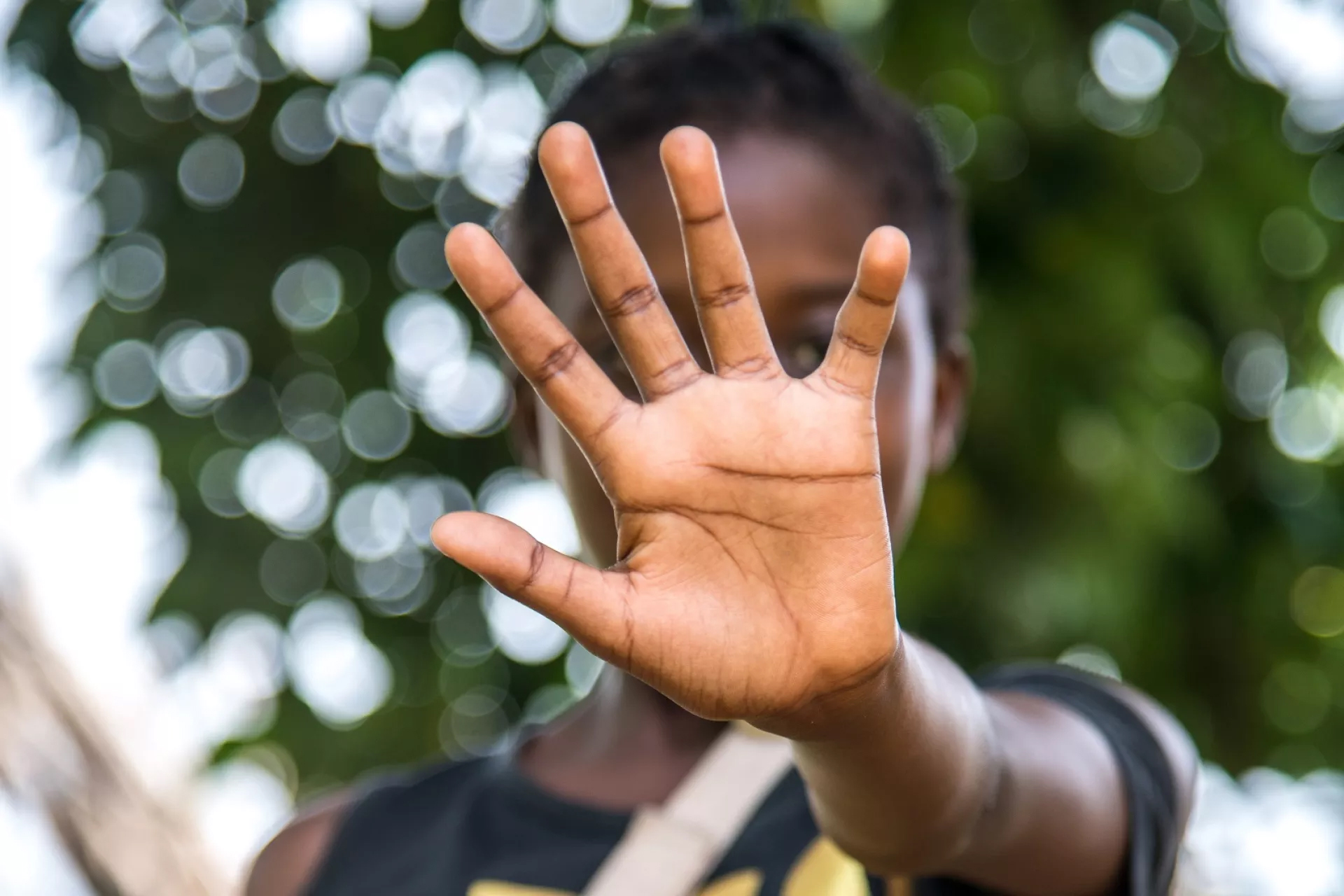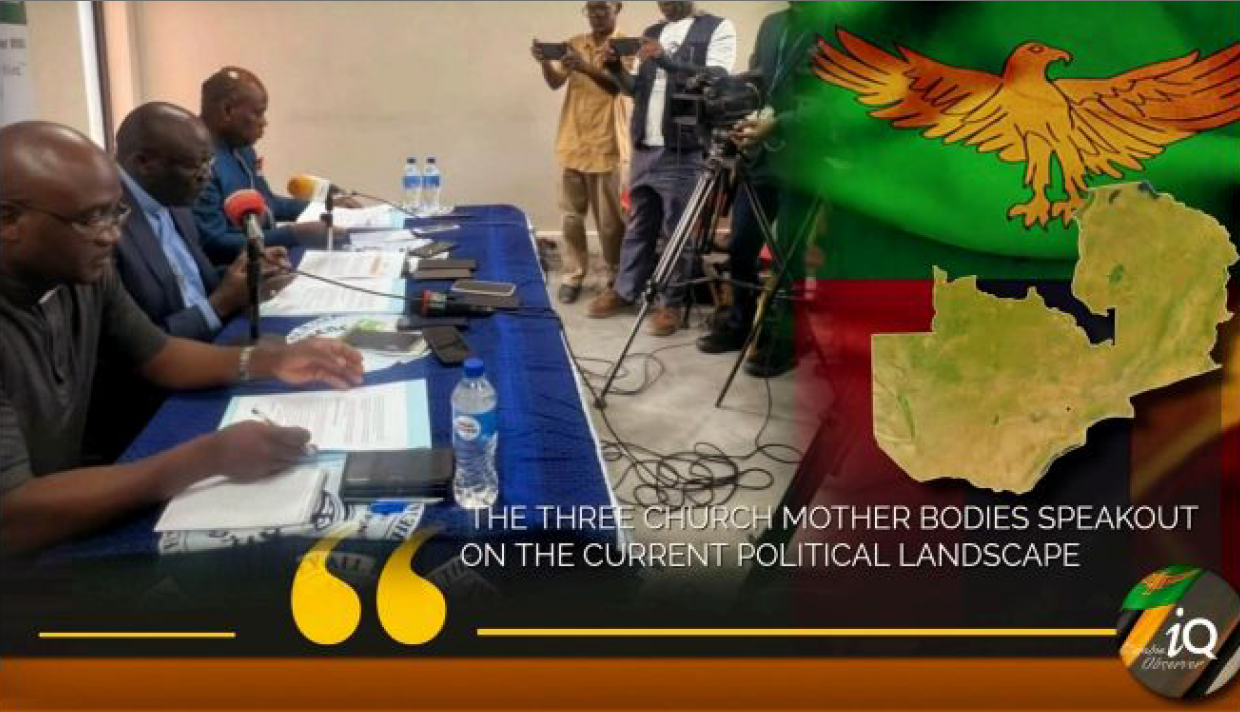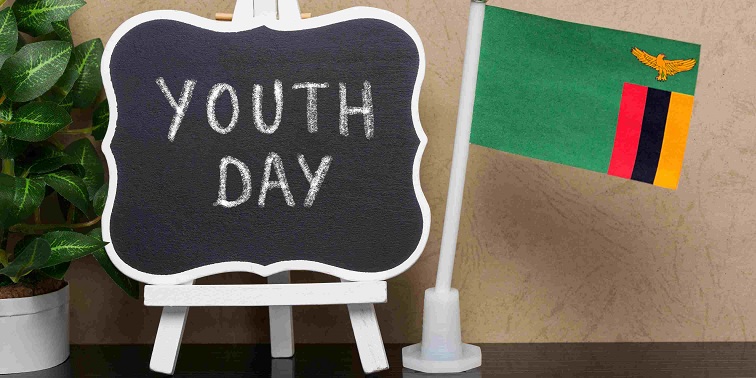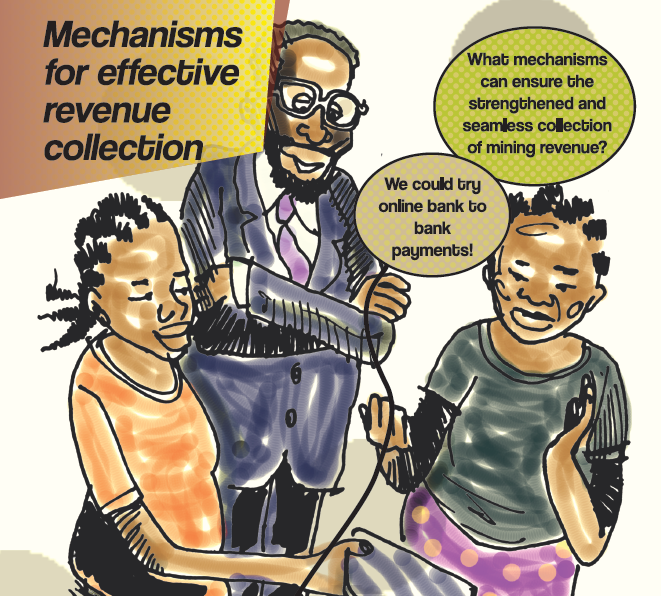Caritas Zambia has noted with deep concern the decision by the United States government to cut aid for essential medicines in Zambia. We understand that this decision stems from credible reports of theft and the illegal sale of donated medicines within our healthcare system. While we unequivocally condemn any form of corruption and the criminal actions of individuals who pilfer resources meant for the sick and vulnerable, we must also voice our profound worry about the devastating impact this aid cut will have on the lives of countless Zambians who rely on these vital medications.
Download the entire A Call For Justice, Accountability, And The Preservation Of Life In The Face Of US Aid Reduction - CARITAS ZAMBIA Press Statement here: https://caritaszambia.org/phocadownload/general/Caritas-Statement-on-USAID-CUT-to-Health.pdf
30th April, 2025.
As Zambia joins the global community in observing Labour Day this year, 2025, Caritas Zambia reflects the profound signifiance of work in human life and social well-being.
Download the entire reflection 'Caritas Zambia Commemorates Labour Day - The Enduring Wisdom of Catholic Social Teaching on Work' here: https://caritaszambia.org/phocadownload/general/labour-day-2025.PDF
A CALL TO END CHILD SEXUAL ABUSE - THIS CAN NOT GO ON; WE NEED TO ACT NOW!
The escalating cases of defilement and sexual abuse against children in Zambia demand immediate, decisive action. Every delay risks the further devastation of innocent lives, permanently affecting their physical and psychological well-being. It is unacceptable and so disheartening to see how the lives of innocent souls are being destroyed by the same people that are supposed to provide protection and safety to them. Child sexual abuse has continued increasing as evidenced by the horrific defilement and murder of a schoolgirl in Kamwala South, the disturbing case of a young cancer patient who was defiled by her own father, and the recent case of a boy who was molested. Action from the government and all stakeholders involved is urgently needed.
These incidences of sexual abuse (defilement, rape, incest, sodomy) clearly shows that the wellbeing of children in Zambia is at high risk, which has continued compromising their health; - physical and psychological wellbeing with some survivors suffering permanent damage. This may continue impacting more children if stringent measures are not put in place to address the scourge. Hence the need to ACT NOW!
As Caritas Zambia, a faith-based organisation, guided by the Catholic Social Teachings we affirm that every child is a SACRED GIFT FROM GOD, deserving of love, utmost protection, and dignity. Our faith reminds us through Scripture: "Let the little children come to me, and do not hinder them, for the kingdom of heaven belongs to such as these" (Matthew 19:14). The Church teaches us to protect the vulnerable, champion justice, and uphold human dignity, principles echoed strongly in our plea for urgent action against child abuse. we stand firmly against any form of child defilement, exploitation, or abuse, recognizing that such acts are profound violations of human rights and dignity of children. We acknowledge the moral and spiritual obligation to safeguard the most vulnerable among us, particularly children, who are often unable to protect or defend themselves.
Therefore, we urgently call upon the government to immediately establish Fast-Track Courts dedicated specifically to swiftly dealing with cases of child sexual abuse. These courts must operate without delay, providing justice and serving as a powerful deterrent against future abuses. Additionally, the enforcement of stringent penalties, including life imprisonment with hard labour for perpetrators, without the option of bail or bond, must become an immediate reality. Parents and caregivers who conceal such atrocities must also face severe consequences. we also Call Civil Society Organisations and government to Strengthen Awareness Campaigns: The government must take the lead and this must be done using various platforms; the media , online and social media, more public meetings - through the church, schools, health centres/ hospitals among others, to create more awareness about the impacts of child sexual abuse on boys and girls. In addition, there is need to strengthen the mental and wellbeing of survivors through offering Support and Healing: We urge government to establish more safe spaces for survivors of child sexual abuse/exploitation and provide them with; counselling, alternative care support systems and healing for them to reclaim their lives.
The time for contemplation has passed. Action is needed NOW! We must collectively work to create an environment that ensures every child's right to grow and thrive safely, protected by the full force of our laws and moral duty. We invite you ALL to play a role in ending defilement against children. We would like to remind the nation at large about the teachings of Jesus Christ which calls and reminds us to be shepherds of the innocent, to nurture and care for children with compassion and vigilance. Let us not forsake our moral obligation to protect God's beloved children.
Issued by:
Rev. Fr. Dr. Gabriel Mapulanga
Caritas Zambia Director
Download the entire signed Escalating Cases Of Child Sexual Abuse - Caritas Zambia Statement here: https://caritaszambia.org/phocadownload/general/Caritas-Zambia-Statement-On-Defilement.pdf
PRESS STATEMENT BY THE THREE CHURCH MOTHER BODIES
19th March, 2025
Behold, how good and how pleasant it is For brethren to dwell together in unity! (Psalm 133: 1)
PREAMBLE
We, the leaders of the Church Mother bodies namely the Council of Churches in Zambia (CCZ), the Evangelical Fellowship of Zambia (EFZ) and the Zambia Conference of Catholic Bishops (ZCCB), greet you in the name of our Lord Jesus Christ.
Download the entire Three Church Mother Bodies Speak out On Political Landscape - March 2025 here: https://caritaszambia.org/phocadownload/general/three-church-mother-bodies-speakout-on-political-landscape.pdf
PRESS STATEMENT FOR IMMEDIATE RELEASE
2025 YOUTH DAY COMMEMORATION UNDER THE THEME: "VOICES AMPLIFIED AND INNOVATIONS IGNITED".
Today, on Youth Day 2025, we unequivocally demand greater recognition, inclusion, and empowerment for young people across Zambia. The future of our nation depends on harnessing the boundless creativity, passion, and innovative ideas of our youth. Their voices must no longer remain on the sidelines but must lead conversations and influence decisions that shape their lives and communities.
Download the entire CARITAS Zambia 2025 Youth Day Commemoration Statement Under The Theme "Voices Amplified And Innovations Ignited" here: https://caritaszambia.org/phocadownload/general/caritas-zambia-youth-day-commemoration-statement-2025.pdf
ABSTRACT
This report examines how mining revenues have flowed from mining companies to local governments in meeting community developmental priorities. Issues include governance inefficiencies, limited citizen participation, and the increasing disparities in mining revenue knowledge by the communities. Non-compliance by some mining companies exacerbates social and economic inequalities, leaving communities in persistent poverty. The study advocates holistic solutions, emphasizing the importance of compliance, governance, transparency, and community involvement. Conclusions stress transparency, collaboration, and community engagement as core principles. Recommendations aim to foster an inclusive and accountable mining sector, achieving fairer distribution of benefits and reducing negative impacts for sustainable community well-being.
Download the entire Caritas Tracking How Mining Resources Have Flowed To Local Councils To Meet Local Development Priorities - Technical Study here: https://caritaszambia.org/phocadownload/key_papers/Caritas-Tracking-How-Mining-Resources-Have-Flowed-Technical-Study.pdf
EXECUTIVE SUMMARY
The issue of mining revenues not benefiting host communities is a critical concern. Many of these communities are facing high levels of poverty, currently at 60%, and inadequate developmental progress, despite significant financial contributions to government entities through levies and payments.
Download the entire Caritas Tracking How Mining Resources Have Flowed To Local Councils To Meet Local Development Priorities - Summary Report here: https://caritaszambia.org/phocadownload/key_papers/Caritas-Tracking-How-Mining-Resources-Have-Flowed-Summary-Report.pdf
Making Mining Money Work (3MW): Follow the Money Posters
Making Mining Money Work (3MW) - Follow the Money is a campaign by Carias Zambia aimed at ensuring that revenues from mining activities benefit local communities. The initiative emphasizes the importance of using these funds for sustainable development, guided by the Rating Act of 2018, which enhances revenue collection for community projects.
Through engaging comics and poster illustrations, the campaign educates local authorities and communities about responsible governance and participatory decision-making regarding mining revenues. By fostering transparency and accountability, Caritas Zambia seeks to build trust and tailor development initiatives to the specific needs of the community, ultimately empowering them to follow the money for a brighter and more resilient future.
Download the entire Caritas Zambia Making Mining Money Work (3MW) Follow the Money 060325 - Posters here: https://caritaszambia.org/phocadownload/posters_brochures_banners/Caritas-Zambia-Making-Mining-Money-Work-3MW-Follow-the-Money-060325-Posters.pdf
INTRODUCTION
Welcome to Making Mining Money Work (3MW): Follow the Money, a booklet by Caritas Zambia. This comic, simplifies concepts on mine revenue distribution, ensuring communities benefit from the wealth generated by mining activities.
Mining has long been a cornerstone of Zambia’s economy. However, the true potential of these resources can only be realised when the revenues foster development within the local communities that host these mining operations. The Rating Act of 2018 provides a framework for local councils to collect mining revenue and channel it into community development projects. This booklet illustrates the critical aspects of this legislation and how it can create a brighter future for all.
Our comic highlights the essential role of transparent and accountable allocation of mining funds.
Themes include thriving communities, transparent fund allocation, community transformation, capacity building, effective revenue collection, community engagement, and collaborative development. We hope to inspire and educate communities on making mining money work for their benefit, building a future where mineral revenues drive meaningful and sustainable development for all.
Enjoy the journey of 3MW and let’s follow the money!
Download the entire Caritas Zambia Making Mining Money Work (3MW) Follow the Money 060325 - Comics here: https://caritaszambia.org/phocadownload/posters_brochures_banners/Caritas-Zambia-Making-Mining-Money-Work-3MW-Follow-the-Money-060325-Comics.pdf
CARITAS Zambia PRESS STATEMENT For Immediate Release
Date: 24th October 2024.
ZAMBIA@60: HONORING OUR HERITAGE, EMBRACING OUR FUTURE THROUGH INTEGRAL HUMAN DEVELOPMENT
Today, as Zambia celebrates 60 years of independence under the theme “60 Years Strong: Honoring Our Heritage, Embracing Our Future,” Caritas Zambia proudly joins the nation in reflecting on six decades of resilience, unity, and progress. This milestone not only marks our freedom from colonial rule but also serves as a reminder of our collective responsibility to build a more just, equitable, and sustainable future for all Zambians.
At Caritas Zambia, we are deeply committed to advancing integral human development—an approach that recognizes the importance of fostering human dignity, improving livelihoods, and promoting the holistic well-being of individuals and communities. In line with the Independence Day theme, we see this moment as an opportunity to reaffirm our dedication to both honoring our heritage and embracing our future.
Honoring Our Heritage
Our heritage is rich with values that have sustained Zambia’s people for generations: community, compassion, and stewardship of our natural resources. These are the very principles that guide our work in supporting rural communities, promoting agroecological practices, and preserving the cultural and social foundations of our nation.
We pay tribute to the wisdom of our ancestors and their commitment to working together for the common good. Their example reminds us that progress must be measured not just by economic growth but by how we care for one another, ensure equitable opportunities, and respect the environment we all depend on.
Our programmes are designed to empower communities through participatory development, recognizing that the solutions to today’s challenges lie in the resilience and knowledge of our people.
Embracing Our Future
As we look ahead, we must remain committed to shaping a future where every Zambian has the opportunity to thrive. Embracing our future means embracing innovation, inclusivity, and sustainability. At Caritas Zambia, we believe that development must be inclusive, ensuring that no one is left behind—whether it is through promoting gender equality, enhancing access to education, or supporting youth empowerment.
Our vision for Zambia’s future is one of sustainable development, where economic advancement goes hand in hand with environmental stewardship. By empowering communities with the skills and resources to adapt to climate change and engage in sustainable agricultural practices, we are contributingto to a Zambia where future generations can live in harmony with the land.
A Call to Action
As we celebrate Zambia’s 60th Independence Day, we urge all citizens, civil society organizations, government leaders, and the private sector to reflect on how we can work together to build a Zambia that reflects our shared aspirations. We invite everyone to join us in creating a future rooted in justice, peace, and dignity for all. Let us honor our rich heritage by safeguarding it for future generations. Let us embrace our future by investing in people and ensuring that the progress we make today benefits every Zambian tomorrow.
Happy 60th Independence Day, Zambia!!
Caritas Executive Director
Fr. Dr. Gabriel Mapulanga
Download the entire signed copy of the Zambia@60: Honoring Our Heritage, Embracing Our Future Through Integral Human Development Press Statement here: https://caritaszambia.org/phocadownload/general/Zambia-60-Honoring-Our-Heritage-Embracing-Our-Future-Through-Integral-Human-Development.pdf
- CARITAS Zambia’s Submission To The Parliamentary Committee On Agriculture, Lands And Natural Resources
- Caritas Zambia's Emergency Preparedness, Response and Mitigation (EPRM) Plan
- Fraternal Cooperation In The Context Of Localisation And Decolonisation
- Rethinking Humanitarian and Development Assistance in Africa
- Agroecology – A Sustainable Farming System For Zambian Farmers
- Enhancing Livelihoods and Wellbeing of Vulnerable Families Back-Drops
- Child Protection Pop-Up Banners
- Press Statement by Caritas (Integral Human Development) Commission - July 2024
- Zambia Alternative Mining Indaba - Progress And Achievements 2012 to 2019
- Untold Stories Of Artisanal And Small Scale Mining In Zambia
About Caritas Zambia
Caritas Zambia is a Catholic Organisation that is an integral structure of the Zambia Conference of Catholic Bishops (ZCCB). The Conference of Bishops is a permanent grouping of Bishops of a given nation or territory that jointly exercises certain pastoral functions on behalf of the Christian faithful of their territory. This is done for the sake of effective evangelisation. To promote the principle of the common good which the Church offers humankind, especially through forms and programmes of the apostolate which are fittingly adapted to the circumstances of the time and place, is the role of Bishops.
Kapingila Hse, Kabulonga Rd, Plot BRT6, P.O.Box 31965, Lusaka 10101, Zambia.
Tel: +260-211-260980 | +260-211-261789









